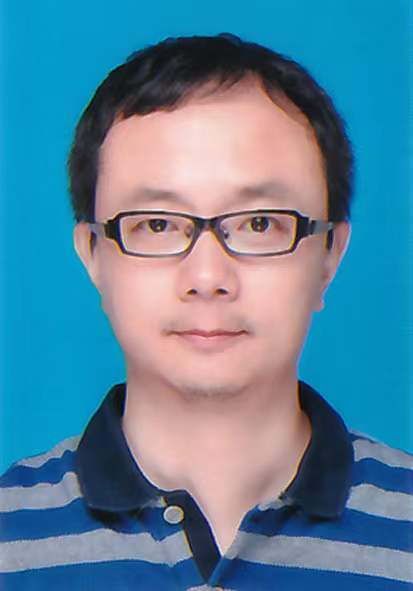
发布时间:2021-12-21

性 别:男
出生年月:1975年4月
职 称:教授,博导
学 历:博士
学 位:工学博士
电 话:13377877831
邮 箱:tujianwei@whut.edu.cn
个人简历:
1993.09~1997.06华中科技大学、学士
1997.09~2000.06武汉理工大学、工学硕士
2000.09~2003.11武汉理工大学、工学博士
主要研究方向:
结构抗震减振理论;工程结构振动的被动控制、主动控制、半主动控制和智能控制;无机纤维筋混凝土结构的破坏机理、静力分析、动力分析和抗震理论
代表性科研项目:
国家自然科学基金面上项目(编号:51978550):基于磁流变弹性体和宏纤维复合材料的正交异性钢桥面板疲劳振动的延寿控制,60万,2020.1-2023.12
湖北省创新群体项目(编号:2016CFA020):结构振动的智能控制,50万,2016.9-2019.12
国家自然科学基金面上项目(编号:51478372):磁流变脂阻尼器对高柔塔架结构振动的智能控制,84万,2015.1-2019.12
国家自然科学基金面上项目(编号:51178368):新型磁流变弹性体智能材料器件及在升船机地震鞭梢效应控制中的应用,60万,2012.1-2015.12
国家自然科学基金青年基金项目(编号:50708086):大跨度公铁两用斜拉桥纵向列车制动效应的智能混合控制,20万,2008.1-2011.12
大桥局集团有限公司,大型磁流变阻尼器系统,484万,2009.1-2012.12
主要成果简述:
涂建维,博士,武汉理工大学教授,博士生导师。中国结构减震与控制专业委员会理事,中国结构抗振控制与健康监测专业委员会委员,湖北省土木建筑学会理事,国家自然科学基金委员会工程材料学部网评专家,国家科技奖励评审专家,湖北省科技奖励评审专家。主要从事结构抗震理论与技术、土木工程结构的振动控制、无机纤维筋混凝土结构力学性能的研究工作。主持了国家自然科学基金项目4项和湖北省自然科学基金创新群体项目1项、参与了2项国家自然科学基金重点项目、1项国家科技部科技攻关重点项目和1项国家863课题的研究。共发表学术论文120余篇,其中被SCI、EI收录53篇,出版专著1部,获得授权国家发明专利20项。研究成果在2012年获得湖北省科技进步奖一等奖,2014年获得国家发明奖二等奖,均排名第4。
论文
[1] Gao, K., Xie, H., Li, Z., Zhang, J., & Tu, J. (2021). Study on eccentric behavior and serviceability performance of slender rectangular concrete columns reinforced with GFRP bars. Composite Structures, 263, 113680.
[2] Marcelo Valarezo Tandazo, C., & Wei Tu, J. (2020). Research on vibration control for glass fiber reinforced polymer reinforced concrete (GFRP RC) frames subject to seismic loading. Composite Structures, 113290.
[3] Hajjaj, M. M., & Tu, J. (2021). A seismic metamaterial concept with very short resonators using depleted uranium. Archive of Applied Mechanics, 91(5), 2279–2300.
[4] Tu, J., Xie, H., & Gao, K. (2020). Prediction of the Long-Term Performance and Durability of GFRP Bars under the Combined Effect of a Sustained Load and Severe Environments. Materials, 13(10), 2341.
[5] Zhao, Q., Tu, J., Han, W., Wang, X., & Chen, Y. (2020). Hydration Properties of Portland Cement Paste with Boron Gangue. Advances in Materials Science and Engineering, 2020, 1–9.
[6] Zhang, J., Li, Z., Gao, K., & Liu, M. (2019). Research on actuation performance of macro fiber composites based on third order shear deformation theory. Smart Materials and Structures.
[7] Tu, J., Xie, H., Gao, K., Li, Z., & Zhang, J. (2019). Durability Prediction of GFRP Rebar Based on Elastic Modulus Degradation. Frontiers in Materials, 6.
[8] Zhang, J., Tu, J., Li, Z., Gao, K., & Xie, H. (2019). Modeling on Actuation Behavior of Macro-Fiber Composite Laminated Structures Based on Sinusoidal Shear Deformation Theory. Applied Sciences, 9(14), 2893.
[9] Tu, J., Li, Z., Zhang, J., Gao, K., Liao, J., & Gao, J. (2019). Development, Test, and Mechanical Model of the Leak-Proof Magnetorheological Damper. Frontiers in Materials, 6.
[10] Tu, J., Gao, K., He, L., & Li, X. (2018). Experimental study on the axial compression performance of GFRP-reinforced concrete square columns. Advances in Structural Engineering, 22(7), 1554–1565.
[11] Gao, K., Li, Z., Zhang, J., Tu, J., & Li, X. (2019). Experimental Research on Bond Behavior Between GFRP Bars and Stirrups-Confined Concrete. Applied Sciences, 9(7), 1340.
[12] Tu, J. W., Guo, D. L., Mei, S. T., Jiang, H. C., & Li, X. P. (2015). Three-parameter Weibull distribution model for tensile strength of GFRP bars based on experimental tests. Materials Research Innovations, 19(sup5), S5–1191–S5–1196.
[13] Tu, J. W., Yu, Y., Huang, L., Tu, B., & Xu, J. Y. (2014). Research on new type viscoelastic damper based on MRE smart material: design, experiment and modelling. Materials Research Innovations, 18(sup2), S2–243–S2–249.
[14] Tu, J. W., Tu, B., Mei, S. T., Huang, L., & Xu, J. Y. (2014). Research on new type MRE isolator and its mechanical model. Materials Research Innovations, 18(sup2), S2–552–S2–558.
[15] Tu, J., Lin, X., Tu, B., Xu, J., & Tan, D. (2014). Simulation and experimental tests on active mass damper control system based on Model Reference Adaptive Control algorithm. Journal of Sound and Vibration, 333(20), 4826–4842.
[16] Tu, J. W., Liu, J., Qu, W. L., Zhou, Q., Cheng, H. B., & Cheng, X. D. (2011). Design and Fabrication of 500-kN Large-scale MR Damper. Journal of Intelligent Material Systems and Structures, 22(5), 475–487.
[17] Tu, J.-W., Qu, W.-L., & Jing Chen. (2008). An Experimental Study on Semi-active Seismic Response Control of a Large-span Building on Top of Ship Lift Towers. Journal of Vibration and Control, 14(7), 1055–1074.
[18] Zhong, Y., Tu, J., Yu, Y., Xu, J., & Tan, D. (2017). Temperature compensation in viscoelastic damper using magnetorheological effect. Journal of Sound and Vibration, 398, 39–51.
[19] Zhong, Y., Tu, J. W., Que, G., Tu, B., & Xu, J. Y. (2016). Analysis and Control of the Coupled Vibration Between the Ship Lift and Ship Chamber. International Journal of Civil Engineering, 14(5), 307–324.
授权发明专利
[1]涂建维,付金海,王帅兵,一种基于磁流变弹性体的调频管道减振器,2019, CN201910753267.
[2]涂建维,张家瑞,赖方鹏,林泽昕,一种宏纤维复合材料压电常数优化系数的获取方法及装置,2017, CN201710370089.
[3]席金耀,陈浩,涂建维,周强,基于磁流变弹性体和电涡流的变刚度变阻尼复合阻尼器,2019, CN201910753650.
[4]涂建维,高经纬,陈浩,一种多层减压的磁流变阻尼器,2019, CN201910338681.
[5]涂建维,刘凡,高经纬,李召,赖方鹏,李新平,一种基于磁流变弹性体变频阻尼器减振试验装置及其方法,2018,CN201810719685.
[6]涂建维,朱倩莹,高奎等,一种基于宏纤维复合材料的拉索变刚度系统,2018,CN201810716852
[7]涂建维,赖方鹏,张家瑞,林泽昕,一种刚度可调的复合阻尼器,2017,CN201710331717
[8]涂建维,刘景,一种粘弹性材料温度软化效应的补偿控制方法,2016,CN201610151383
[9]涂建维,汪伯潮,一种基于磁流变弹性体和压电材料的变刚度变摩擦阻尼器,2015,CN201510405372
[10]涂建维,汪伯潮,一种提高磁流变弹性体吸振器变形能力的装置,2015,CN201510405371
[11]涂建维,张妙娴,蒋秋洁,一种流体阻尼器的防泄漏装置,2015,CN201510191462
[12]涂建维,赵权,一种裂缝宽度和挠度控制的FRP筋混凝土梁的设计方法,2015,CN201510405373
[13]涂建维,阻尼力智能可控的粘弹性阻尼器,2011,CN201110154596
[14]涂建维,瞿伟廉,自适应调节剪切性能的叠层型智能隔震支座,2009,CN200910062822
[15]刘嘉,涂建维,周长超等,一种延长磁变流液阻尼器使用寿命的活塞杆防护套筒装置,2015,CN201510203525
[16]张妙娴,李颖,彭若桐,涂建维,毕银辉,复合型电磁摩擦阻尼器,2015,CN201510175207
[17]瞿伟廉,涂建维,磁流变液阻尼器液体沉降的控制装置,2006,CN200620095164
[18]瞿伟廉,秦顺全,涂建维等,漂浮型斜拉桥主梁纵向振动反应的混合控制系统,2006,CN200610124464
[19]瞿伟廉,涂建维,程海斌等,足尺磁流变液(MR)阻尼器磁滞效应调整的方法,2005,CN200510019614,
[20]瞿伟廉,张清杰,周强,官建国,陈静,魏文晖,涂建维,吕明云,升船机地震鞭梢效应的智能自适应减震控制装置,2004,CN200410013003
对研究生的要求:
对研究具有强烈的兴趣和较强的求知欲;具有较强的动手能力和独立思考问题的能力;具备较强的责任心、自信心和担当能力。

官方微信